Biden’s burden
Joe Biden faces a troubled economy, political division and pandemic as he becomes the 46th US president. How could his administration potentially impact the financial markets?
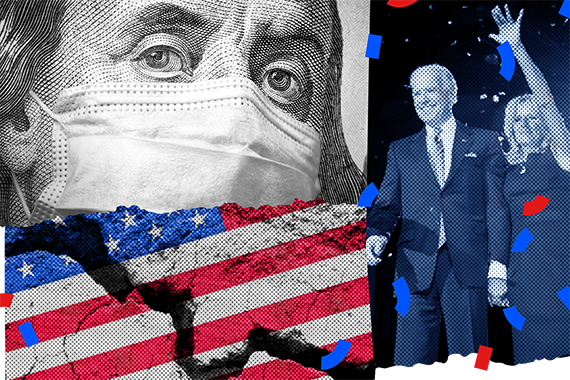
8 January, 2021
Blue wave official as Dems sweep Georgia Senate runoffs
President-elect Biden will gladly accept the narrowest possible margin of Senate control. Democrats Jon Ossoff and Raphael Warnock delivered surprise victories in two final Georgia Senate runoff elections, paving the way for the Biden administration to have an easier time with Cabinet appointments and delivering on parts of Biden’s campaign agenda. Both Democratic Georgia victories make the Senate split 50-50 amongst Republicans, with Vice President-elect Kamala Harris being the tie-breaking vote. The slimmest control of the Senate is still a big deal, but traders need to remember that it is unlikely that President-elect Biden will be able to get the ten Republican votes needed for the 60-vote total necessary to deliver on massive corporate tax increases, gun control, or increased regulation reform. Biden should not have any delays in advancing his Cabinet picks, implementing coronavirus initiatives, and releasing economic stimulus checks. It will be harder to negotiate infrastructure spending, healthcare reform, and his clean energy agenda, but he could accomplish parts of that via executive orders.
Electoral vote certification
What was supposed to be an anticlimactic conclusion to the Presidential election became a very dark day in American history. Protesters backing President Trump stormed the U.S. Capitol, forcing Congress to stop proceedings on the formal approval of Biden's victory. Once the Capitol was secured, lawmakers made sure to certify Biden and Harris the winners of the 2020 election later that night.
Trump’s remaining days
Prior to the protesters storming the Capitol, financial markets anticipated the last few days of the Trump administration to further cut technology ties with China. Now, some lawmakers are calling for President Trump to be removed from office, with House Speaker Pelosi threatening to pursue impeachment if his Cabinet does not invoke the 25th amendment. Regardless of when Trump leaves office, Wall Street is buying stocks since the prospects of more stimulus money have increased now that the Democrats will control Congress and the White House.
Biden’s first 100 days
The Biden administration’s first 100 days are expected to quickly deliver $2,000 stimulus checks to Americans and see a strong push to get over 100 million Covid vaccines administered. Biden wants to completely get the coronavirus under control, and he is hoping Americans will participate in his 100-day mask mandate.
In addition to launching his Covid strategy, Biden may quickly unleash some executive orders that will pave the way for his agenda on infrastructure spending, healthcare, and energy. Given the fragility of the economy, tax increases will likely have to wait until the economy is on more sound footing.
With Biden bound for the White House, how will you trade?
Already have a live trading account? It is easy to fund your account using one of the following payment methods






Covid policy
Biden has signaled he will follow the advice of health experts and work closely with governors and mayors. The US is struggling with test-and-trace, which will become a priority for his administration. Biden will put the full backing of the federal government behind deploying Covid vaccines across the country. So far, states have had the burden fall on them to figure out how to rollout vaccines, and that has not gone well. The US was only able to administer 4.5 million first-dose vaccines out of the 15 million that were distributed, which was well short of the year-end goal of 20 million. Biden is expected to expedite the distribution of vaccines, deliver clear guidance on administering them and use the Defense Production Act to force manufacturers to fast-track contracts that will accelerate the availability of materials and syringes.
Election impact on the US dollar
The dollar finished 2020 with bearish bets closely approaching the highest levels in a decade. The consensus trade on Wall Street was for a weaker dollar after the Fed signaled interest rates would remain near-zero through the end of 2023 and that they are ready to do more to support the economy. The Fed has been the biggest supporter of the case for fiscal policy, so with the Democrats ultimately delivering the ‘blue wave,’ they may keep policy steady going forward.
The Democratic majority in the Senate means Americans will soon see $2,000 stimulus checks and if the virus situation remains tense, prospects of additional fiscal support will grow. One of the primary arguments for a weaker dollar in 2021 is that a Democratic White House and Congress is great for economic growth globally and positive for the high-beta currencies. US debt is skyrocketing, and this fiscal path is unsustainable, but the balance sheet will grow until the US is completely on the other side of Covid.
Calls for dollar weakness should remain intact in the first half of the year as the Fed will remain ultra-accommodative until large parts of the economy return to pre-pandemic norms. The commodity currencies could outperform this year as they will see their respective central banks tighten rates well before the Fed is able to consider having discussion on when to tighten policy.
If the Biden administration is successful in fighting Covid, dollar volatility could possibly intensify in the summer if Fed members start to voice that they are ready to pare bond purchases.
Disclaimer: This article is for general information purposes only and does not take into account your personal circumstances. This is not investment advice or an inducement to trade. The information shared is for illustrative purposes only and may not reflect current prices or offers from OANDA. Clients are solely responsible for determining whether trading or a particular transaction is suitable. We recommend you seek independent financial advice and ensure you fully understand the risks involved before trading. Leveraged trading is high risk and not suitable for all. Losses can exceed investments.
Opinions are the author's, not necessarily that of OANDA Global Corporation or any of its affiliates, subsidiaries, officers or directors.
Edward Moya
Senior Market Analyst, The Americas, OANDA
Ed has over two decades of financial market experience and began his career on Wall Street as a forex broker. Ed has worked with some of the top research and news departments in New York and frequently appears on CNBC, Bloomberg TV, Yahoo Finance Live, Fox Business, AusbizTV, and Sky News.
Exclusive to OANDA
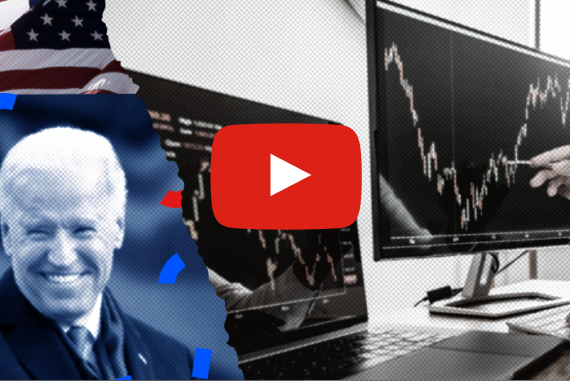
US election impact and market analysis
Market experts examine the impact of Biden’s contentious US election victory and its effect on the financial markets in this ongoing video series.
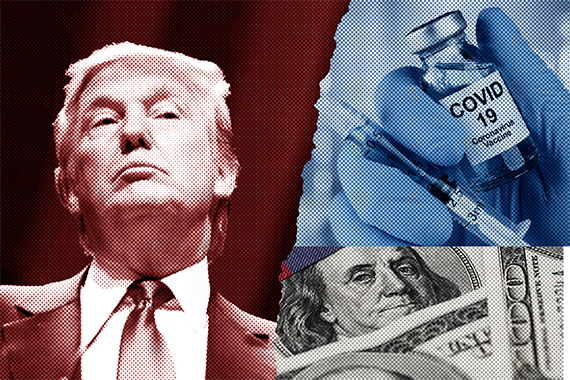
Trump team keeps fighting
Between election lawsuits, Alaskan drilling, Israeli-Saudi talks and fiscal stimulus, the outgoing Trump administration has been doing more than just playing golf.
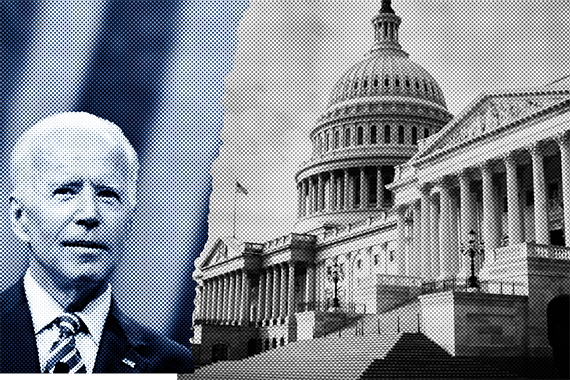
Election win for Biden but Republicans hold Senate
Joe Biden may have won the election thanks to slim margins in key states, but the Democrats lost seats in the House and have failed to hold the Senate.
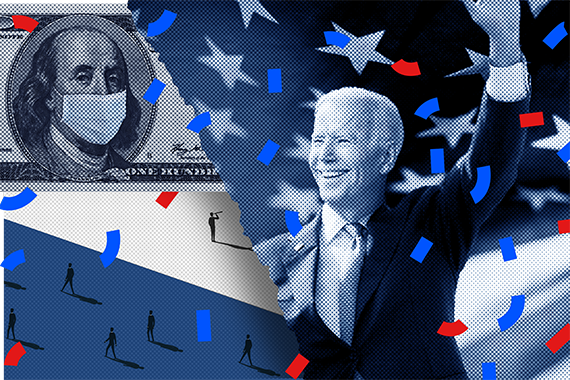
Biden’s ‘blue wave’ is a blue ripple
Joe Biden appears to have won the presidential election thanks to slim margins in a few key states, but the Democrats lost seats in the House and have failed to gain control of the Senate.